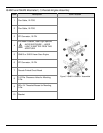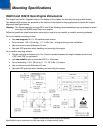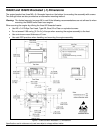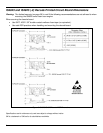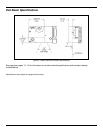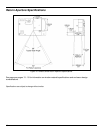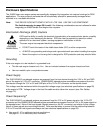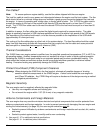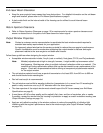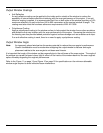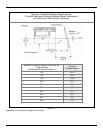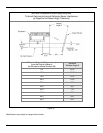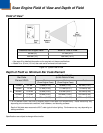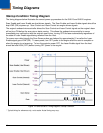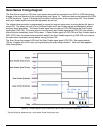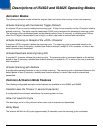
13
Exit Laser Beam Clearance
• Keep the scan engine’s beam sweep free from obstructions. For detailed information on the exit beam
angle and location, please refer to Exit Beam Specifications on page 9.
• A dark matte-finish on the internal walls of the housing can be utilized to avoid internal beam
reflections.
Return Aperture Clearance
• Refer to Return Aperture Clearance on page 10 for requirements for return aperture clearance and
ensure no obstructions in the paths of exit laser beam and return signal.
Output Window Properties
Note: Contact a customer service representative to coordinate the best window material required to
maintain laser safety requirements for your application.
An improperly placed window has the serious potential to reduce the scan engine’s performance.
Careful consideration must be made when designing the output window’s distance and angle
placement relative to the scan engine’s exit beam and chassis.
Follow these guidelines when designing the output window.
• Acceptable window materials include; Acrylic (cast or molded), float glass, CR-39, and Polycarbonate.
Note: Molded polycarbonate is high in strength; however, it might exhibit a phenomenon called
birefringence. Birefringence refers to multiple indices of refraction within one material. This
condition will induce polarization effects that can be detrimental to scan performance of the
engine. Check with a representative before utilizing a transparent polycarbonate material
for the output window.
• The exit window material must have a spectral transmission of at least 85% from 640 nm to 690 nm
and should block shorter wavelengths.
• Red cell-cast acrylic is recommended.
• The exit window must exhibit a wavefront distortion (transmission) of no more than 0.2 wavelengths
peak-to-valley maximum over any 0.08" diameter within the clear aperture.
• The clear aperture of the output window must extend beyond the 54° beam sweep (see Exit Beam
Specifications on page 9).
• It must have a 60-40 surface quality and be optically flat, clear, and free of scratches, pits, or seeds.
If possible, recess the window into the housing for protection or apply a scratch resistance coating (see
Output Window Coatings on page 14).
• Apply an anti-reflective coating to the window surfaces to reduce the possibility of reflective light
interfering with the engine’s performance due to the window angle (see Output Window Coatings
on page 14).



